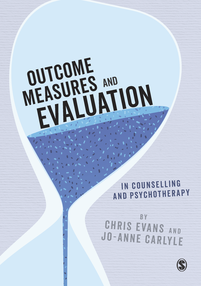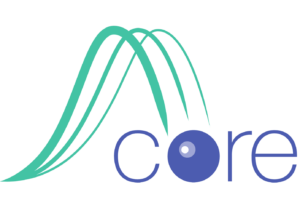This post is available in: English العربية (Arabic), there may also be a subsite in your language, see "Subsites" in the top menu.
Background story
This translation is now complete. Hooray! It was co-led by Sulafa Yassin, qualified counsellor, and myself. We would like to thank the Director General, Dr Abdulghani Alharbi, of the King Fahad Academy in London and his staff for supporting the translation project. We would especially like to thank every young person who dedicated their time and contributed to the translation of this document at the various stages. There were many people involved both directly and indirectly in the process of translating this document; their input and efforts were greatly appreciated and allowed us to produce this tool, which we hope will be beneficial to professionals worldwide.
A special thank you also to Luma Murtadha, professional interpreter and translator, who assisted during the translation sessions and with the facilitation of the focus group with the young people. Additional thanks to Abdelrahman Yassin, Arabic Language and Literature specialist, for his support, Faten Ardekany, professional interpreter and translator and Thilal Halimah, Psychology PhD student at the University of Cambridge for their back-translations.
Sulafa has checked a few last tiny typesetting issues and we have agreed that the default version should have the score values on it and using “Arabic numerals”, i.e. the usual English numbers: 0, 1, 2, 3 and 4 rather than their equivalents in Arabic. We chose this because we think that many young people using the forms will know these numbers and we also think that the forms may often be used in English speaking countries where the scoring may be done by practitioners or even administrators who don’t speak or read Arabic. Here’s a screenshot.
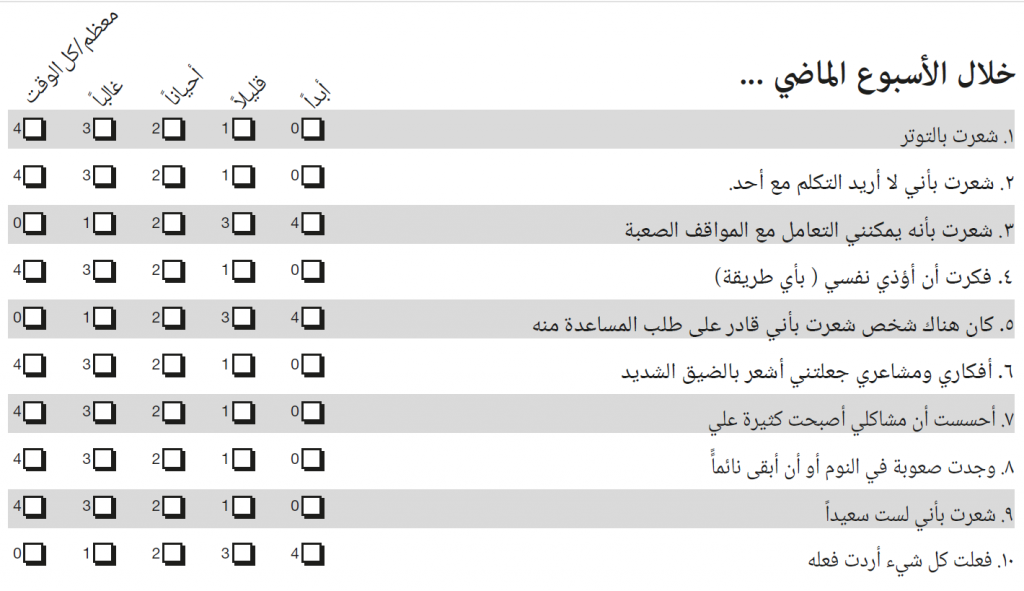
I have made up a version with the score numbers in Arabic:
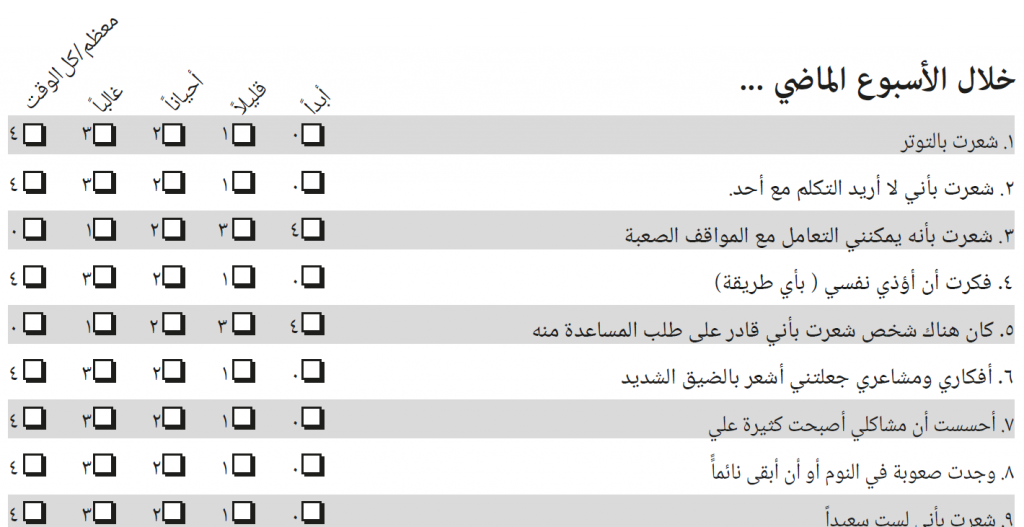
And also a version with no score numbers:
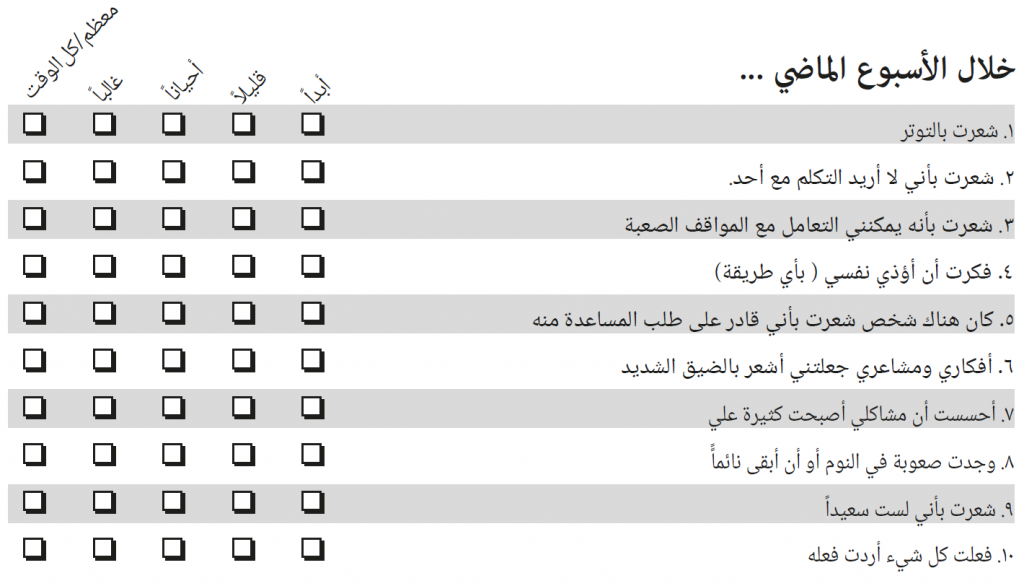
You can download our preferred version here. Depending on the browser you use and its settings, clicking on that link may offer to download the file or it may just open the PD. However, if it does that you should then be able to download it, alternatively you may have to right click on the link or use a menu option to download it. Please remember that, like all CORE instruments, the measure is made available under the terms of the Creative Commons Attribution-NonCommercial-NoDerivatives 4.0 International (CC BY-NC-ND 4.0) licence. See more on copyright at Copyright and licensing. If you download the measure you are accepting the terms of that licence, i.e. that you mustn’t change the content in any way, and you must not make profit simply out of reselling it. If you abide by those conditions you are respecting the licence and there is no reproduction fee and you may reproduce it, without changing the content, and including the copyright line, in software.
If you feel that either of the other versions is unequivocally better for you, get in touch with me. We are very keen to link up with universities or clinical services in Arabic speaking countries who might want to collaborate on psychometric exploration of the Arabic YP-CORE or research or clinical use of it.
Paper about the translation process
We are very happy to announce that our paper, Yassin, S., & Evans, C. (2021). A journey to improve Arabic‐speaking young peoples’ access to psychological assessment tools: It’s not just Google translate! Counselling and Psychotherapy Research, 22(2): 396-405. https://doi.org/10.1002/capr.12431 has been published. It’s behind a paywall (zero income for CORE = no money for open access fees!) so contact me if you want a copy.
I am particularly pleased that this paper is out as previously Katie Rogers’s paper about translating the CORE-OM into BSL (Rogers, K. D., Young, A., Lovell, K., & Evans, C. (2013). The challenges of translating the clinical outcomes in routine evaluation-outcome measure (CORE-OM) into British Sign Language. Journal of Deaf Studies and Deaf Education, 18(3), 287–298. Scopus. https://doi.org/10.1093/deafed/ent002) was the furthest I had gone in trying to spell out what is involved in doing good translations of mental health/wellbeing questionnaires. Understandably that paper had focused a lot on the particular issues of translating a written questionnaire into a video based sign language format. This paper with Sulafa goes much more into the cultural and the contextual political issues but also stresses that translations are personal. I will be requiring anyone working on future CORE translations with me to read the paper. Sulafa and I aren’t claiming there’s anything perfect about this translation, there’s no such thing, but are laying out clearly why we think it is a good one.
Download
Depending on your web browser, clicking on that will either open it, in which case you should be able to save it from there, or will offer to download it for you (or it may just download it to its default download location). Downloading means you accept the licence on the measure, see copyright and licensing information.
Created 29/3/20, updated with full paper publication 20/4/22. Author Chris Evans, licence: Attribution 4.0 International (CC BY 4.0).

